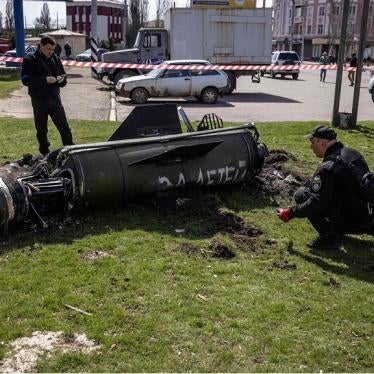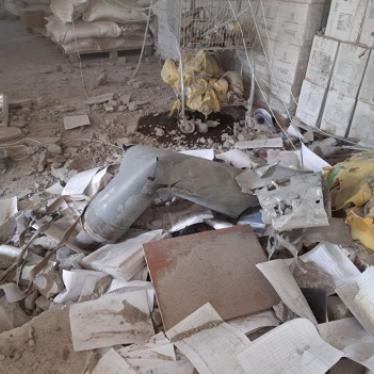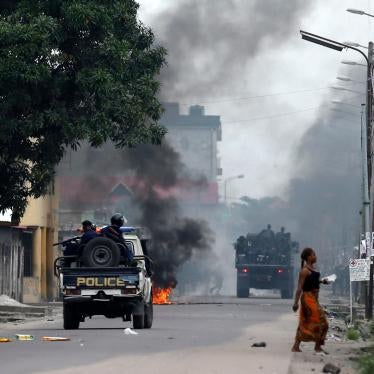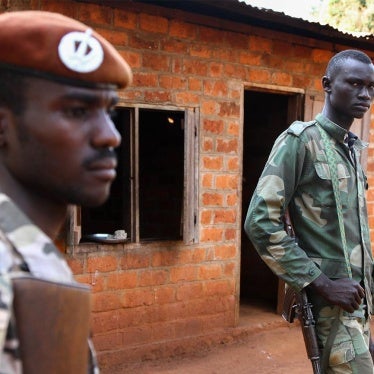(Washington, DC) – Nigeria ratified the international Convention on Cluster Munitions on February 28, 2023, becoming the 111th country to do so, Human Rights Watch said today.
“Nigeria’s decision to join the cluster munitions ban shows that countries can play an important role in stigmatizing these heinous weapons, which endanger lives long after the fighting has stopped,” said Steve Goose, arms director at Human Rights Watch and chair of the Cluster Munition Coalition. “Nigeria now needs to carry out the requirements under the treaty and destroy any stocks of the weapons without delay.”
Cluster munitions can be fired from the ground by artillery, rockets, and mortars, or dropped by aircraft. They typically open in the air, dispersing multiple bomblets or submunitions over a wide area. Many submunitions fail to explode on initial impact, leaving duds that pose a long-lasting danger, like landmines.
Nigeria’s Federal Executive Council approved ratification of the 2008 Convention on Cluster Munitions on June 22, 2021. Nigeria deposited the instrument of ratification with the United Nations on February 28. The convention comprehensively bans cluster munitions and requires destruction of stockpiles, clearance of areas contaminated by cluster munition remnants, and assistance to victims of the weapons.
Nigeria had signed the Convention on Cluster Munitions in June 2009 after participating in the fast-track diplomatic “Oslo Process” that negotiated and adopted the convention in May 2008. It expressed its intent to ratify the treaty over the past 13 years, but the domestic approval process did not gain momentum until recently.
The Cluster Munition Monitor – the annual report by the Cluster Munition Coalition – reported that Nigeria is not known to have produced or exported cluster munitions, but imported them, possesses a stockpile, and may have used them in the past.
As required by the treaty, Nigeria must now formally declare any cluster munition stocks and destroy them within the eight-year stockpile destruction deadline. Nigerian authorities should investigate any possible use of cluster munitions in the past to determine if any areas need to be cleared of cluster munition remnants and determine if assistance is needed for victims of the weapons.
São Tomé and Príncipe was the last country to ratify the Convention on Cluster Munitions, in January 2020. Eight of the 12 signatory countries that still have not ratified the convention are in Africa: Angola, Central African Republic, Democratic Republic of Congo, Djibouti, Kenya, Liberia, Tanzania, and Uganda. The other signatories are Cyprus, Haiti, Indonesia, and Jamaica.
Eleven other countries in Africa still need to join the convention: Algeria, Egypt, Equatorial Guinea, Eritrea, Ethiopia, Gabon, Libya, Morocco, South Sudan, Sudan, and Zimbabwe.
Human Rights Watch is a co-founder of the Cluster Munition Coalition, the global coalition of nongovernmental organizations working to eradicate cluster munitions and provides editing for its annual Cluster Munition Monitor report.
Over the past year, Russian forces have repeatedly used cluster munitions in Ukraine, while Ukrainian forces also appear to have used cluster munitions rockets on several occasions. Cluster munitions were also used in attacks in Idlib governorate in Syria on November 6, 2022 by the Syrian-Russian military alliance, killing and wounding civilians.
“Countries that have not yet banned cluster munitions should follow Nigeria’s lead and do so without delay,” Goose said. “The best response to the recent use of these discredited weapons is to embrace and reinforce international law rejecting them.”








